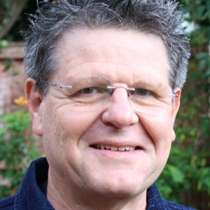
François le Vaillant (1753-1824), came to the Cape in 1781 on behalf of the Dutch East India Company, to collect specimens of fauna and flora. He remained in South Africa until 1784 and made two major expeditions. In the first he travelled from Cape Town to the Great Fish River and the Eastern Frontier. In the second he journeyed north, as far as the Orange River. His accounts of these travels were rapidly translated into all major European languages and widely distributed, putting the Cape firmly into the European consciousness.
“Le Vaillant played a major role in establishing how Europe saw the Cape,” says Glenn. “He attempted to represent his South African experience in many ways – from the production of specimens, to lavishly illustrated bird books and travel accounts, and to innovative maps. In so doing, he created more than a single influential text, but rather a range of texts that shaped what came after him, both here and elsewhere. This work helped shape many modern media, genres and intellectual traditions. In many ways Le Vaillant is a founding figure of South African culture.”
Glenn studied at the universities of KwaZulu-Natal, York (UK) and Pennsylvania (USA). He is the editor of François Le Vaillant, Travels in Africa and is currently working on English and French editions of Le Vaillant’s work.
Ian Glenn audio recording available for download.
Ian Glenn video recording:
Start: 7 Oct ’10 5:00 pm
End: 7 Oct ’10 7:00 pm
Cost: Free
Category: Great Texts / Big Questions
Organizer: GIPCA
Email: fin-gipca@uct.ac.za
Venue: Hiddingh Hall
Phone: +27 21 480 7156
Address: Google Map UCT Hiddingh Campus, 31-37 Orange Street, Cape Town, 8001, Cape Town, Western Cape, 8001, South Africa
